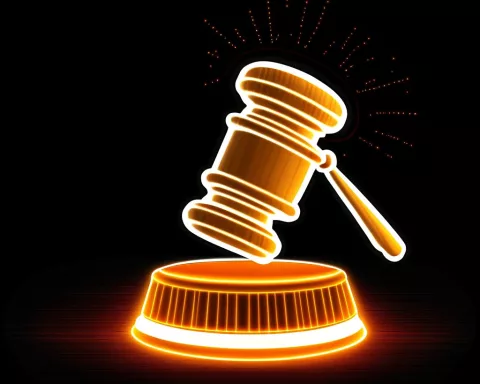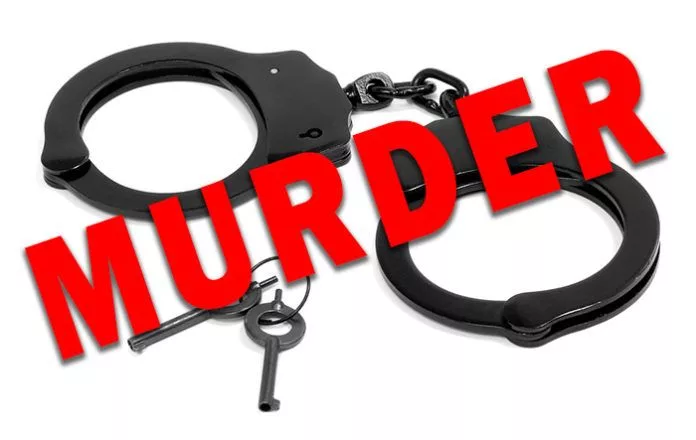Equal Education, a prominent advocacy group, has criticized the appointment of politician Zizi Kodwa for South Africa’s Basic Education portfolio committee due to his alleged involvement in corruption. The organization argues that individuals with clean records should be appointed for roles that demand high levels of ethical integrity and governance, especially in education. Equal Education stresses the importance of ethical leadership and integrity in the government of national unity and the education sector as a whole.
Advocacy group, Equal Education, has criticized the appointment of politician Zizi Kodwa for South Africa’s Basic Education portfolio committee, citing his alleged involvement in corruption. The organization argues that individuals with clean records should be appointed for roles that demand high levels of ethical integrity and governance, especially in education. The spotlight on the ethical governance of the Basic Education portfolio committee is a wake-up call for all stakeholders in the education sector.
Renowned educational advocacy group, Equal Education, has openly criticized the selection of politician Zizi Kodwa for South Africa’s influential Basic Education portfolio committee. Kodwa, currently facing allegations of corruption, was appointed despite his controversial reputation. Equal Education has communicated their disapproval through a letter to the ANC chief whip, Mdumiseni Ntuli.
This controversy occurs on the backdrop of Kodwa’s recent arrest on June 5th, along with businessperson Jehan Mackay, under the charges of corruption and violating the Prevention and Combating of Corrupt Activities Act. The alleged illicit activities took place from April 2015 to February 2016, when Kodwa was in the role of the ANC national spokesperson. Although both accused were granted bail, set at R30 000, their legal issues persist.
Demanding Integrity in Influential Government Roles
The Basic Education portfolio committee is a powerful entity, with substantial sway over the strategic plans of the Department of Basic Education (DBE). Its primary role is to review the outlined plans of the DBE, ensuring alignment with the department’s aim to deliver quality education. Additionally, the committee has jurisdiction over the department’s budget and assures appropriate allocation of funds.
Equal Education is steadfast in its belief that an individual in Kodwa’s position, currently under suspicion for corruption and out on bail, shouldn’t be entrusted with such important responsibilities. They argue that Kodwa’s alleged acceptance of over R1.7 million in bribes linked to government contract manipulation disqualifies him from a position that demands the highest levels of ethical integrity and governance.
Notably, the Parliamentary Code of Ethical Conduct explicitly mandates an unwavering commitment to ethical leadership in such influential roles. The organization also criticized the ANC’s step-aside resolution, aimed at preserving party integrity and addressing corruption issues. Equal Education’s spokesperson, Sesethu August, has expressed skepticism about the effectiveness of this resolution and its impact on the credibility of parliamentary oversight roles.
The Role of Ethical Leadership in the Government of National Unity
In the setting of the Government of National Unity (GNU), the ANC’s oversight responsibilities are heightened, particularly as the new Minister of Basic Education is a delegate from the Democratic Alliance. Equal Education advocates for the appointment of individuals with clean records for these roles, emphasizing the need for strict scrutiny and ethical governance.
Moreover, the committee’s composition is largely new, including the chairperson. The organization fears that Kodwa’s relative seniority and tarnished track record could negatively influence these new members. It stresses the necessity for committee members to be free from ethical concerns and portrays them as role models for dedication and accountability in public service.
Upholding Ethical Standards in South Africa’s Education Sector
Equal Education’s opposition to Zizi Kodwa’s appointment evidences their deep commitment to maintaining high ethical standards and integrity within South Africa’s Basic Education portfolio committee, and by extension, the education sector. The members of this committee, as caretakers of the nation’s education, should set an impeccable example for the generations to come. Their decisions have the potential to shape the future of South Africa’s education system, making it essential to have individuals with reputable records who can handle the rigorous demands of scrutiny and ethical governance.
The spotlight on the ethical governance of the Basic Education portfolio committee is a wake-up call for all stakeholders in the education sector. The weight of the situation and the potential implications for the nation’s education system necessitates prompt action. Aligning with Equal Education’s stance, the portfolio committee needs to embody integrity, dedication, and accountable public service, reflecting the highest standards of ethical leadership.
1. What is the Basic Education portfolio committee and what is its role in South Africa’s education sector?
The Basic Education portfolio committee is a powerful entity with substantial sway over the strategic plans of the Department of Basic Education (DBE). Its primary role is to review the outlined plans of the DBE, ensuring alignment with the department’s aim to deliver quality education. Additionally, the committee has jurisdiction over the department’s budget and assures appropriate allocation of funds.
2. Why has Equal Education criticized the appointment of Zizi Kodwa to the Basic Education portfolio committee?
Equal Education has criticized the appointment of Zizi Kodwa to the Basic Education portfolio committee due to his alleged involvement in corruption. The organization argues that individuals with clean records should be appointed for roles that demand high levels of ethical integrity and governance, especially in education. The spotlight on the ethical governance of the Basic Education portfolio committee is a wake-up call for all stakeholders in the education sector.
3. What is the Parliamentary Code of Ethical Conduct, and what does it mandate?
The Parliamentary Code of Ethical Conduct explicitly mandates an unwavering commitment to ethical leadership in influential roles, including the Basic Education portfolio committee.
4. What is the role of ethical leadership in the Government of National Unity?
In the setting of the Government of National Unity (GNU), the ANC’s oversight responsibilities are heightened, particularly as the new Minister of Basic Education is a delegate from the Democratic Alliance. Equal Education advocates for the appointment of individuals with clean records for these roles, emphasizing the need for strict scrutiny and ethical governance.
5. What is Equal Education’s stance on the ANC’s step-aside resolution?
Equal Education’s spokesperson, Sesethu August, has expressed skepticism about the effectiveness of this resolution and its impact on the credibility of parliamentary oversight roles.
6. Why is it important to have individuals with reputable records in the Basic Education portfolio committee?
The members of the Basic Education portfolio committee, as caretakers of the nation’s education, should set an impeccable example for the generations to come. Their decisions have the potential to shape the future of South Africa’s education system, making it essential to have individuals with reputable records who can handle the rigorous demands of scrutiny and ethical governance.












